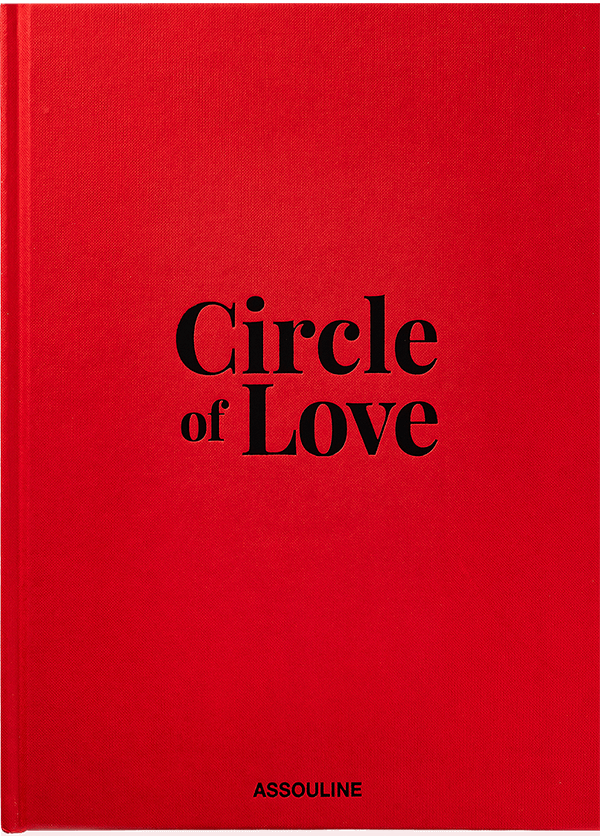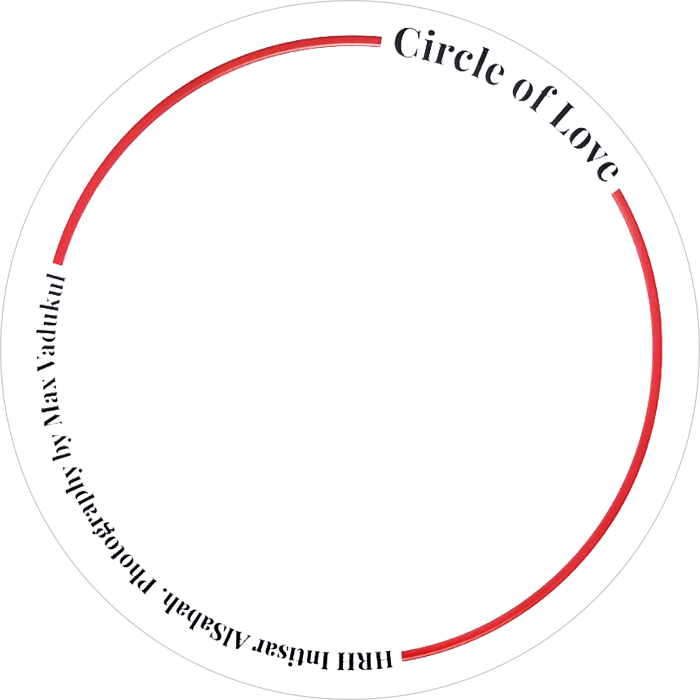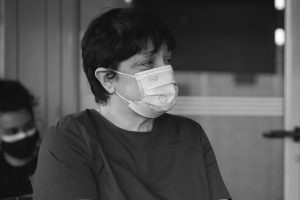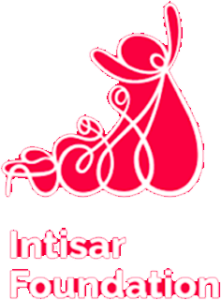X



” After the 2020 Beirut blast, I didn’t fall apart but my house did. I had invested a lot of effort and money to make that house feel like home. However, I don’t care about the loses. I have been able to cope with all of my traumas because of my family’s support and because family is more important to me than anything else.”
My name is Hana, I am a 65 years old Lebanese woman from Beirut Ashrafieh where I live with my husband.
I am currently the principal of Elite -Lycee Francais Internationalle Elite, Bchamoun, and the principal assistant of the Elite schools’ network.
On the 4th of August 2020, I was at home in Ashrafiyeh, where I live on a high floor with a view of the sea. When the first explosion happened, the front glass of the balcony crashed on my head. Our entire house is composed of glass. My husband could have been dead, but although he was terribly wounded, he was miraculously rescued. Since I have memories of the Israeli conflict, I first believed that, when the Beirut blast happened, a missile had hit the building, so I ran to the corridor, then to the bathroom, as we had done throughout all the previous wars.
The Beirut blast was a major catastrophe, and because I am a strong woman, I usually try to minimize the impact of a trauma on those around me, and so I only softly convey all bad news. So, I started thinking about my daughter, who lives in Ashrafiyeh, and my son, who is overseas, and how they would react if we died or were harmed. I don’t want to die because I don’t want to leave my children in agony or grief over their mother’s death, even the thought of it bothers me a lot.
Many of my family members were injured.
After the 2020 Beirut blast, I didn’t fall apart but my house did. I had invested a lot of effort and money to make that house feel like home. However, I don’t care about the loses. I have been able to cope with all of my traumas because of my family’s support and because family is more important to me than anything else.
I had previously lost a house during the civil war in Souk el Ghareb-Mount Lebanon, and I had been kicked out of my house in Raoucheh with just five days’ notice when I could barely pack my belongings and leave.
So, in my life, I had endured a lot of traumatic experiences and I realised that the loss of your loved ones is harder than anything. During the past year, I became so worried about my injured husband because he is not in the best health conditions.
I realised that I started forgetting a lot after the explosion and I had to work harder to focus and perform several normal tasks. I cannot sleep without melatonin, and even with melatonin, I still wake up in the middle of the night. I have sleep apnea and I am constantly afraid that I might stop breathing in the middle of the night. As I said, I don’t want to die and leave my children to suffer.
I’m embarrassed to admit that I was impacted by what I witnessed in the neighbourhood and all the losses. During the aftermath of the explosion, I didn’t receive any assistance when they compensated the victims although I needed financial assistance to restore my house in the midst of a financial crisis.
One day, I was approached by the Intisar Foundation’s team. I loved the concept of the programme and the timing was ideal for me because I work, so I accepted immediately.
I notified everyone in my general neighbourhood that I would be doing theater as well as therapy. This is what I enjoy. I’m known as a drama queen, not because I nag, but because when I perform, I transmit enthusiasm. The way I presented the programme to my colleagues and my passion for it sparked widespread support for the idea.
” Throughout the programme, I let down my barriers and it felt comfortable and secure to open up in front of the loving strangers and in public. It allowed me to breathe and heal. I ended a chapter of my life, and I have forgiven my past self.”
Some moments touched me deeply. I shared things that I never disclosed to anybody, even to myself. I spoke about my relationship with my mother and how I felt trapped, although I knew that my siblings would not tolerate me talking about this subject and would condemn me if I did. I had been suppressing my feelings for so long. Nevertheless, throughout the programme, I let down my barriers and it felt comfortable and secure to open up in front of the loving strangers and in public. It allowed me to breathe and heal. I ended a chapter of my life, and I have forgiven my past self.
I enjoyed the exercises and especially the exercise called room crossing. I was allowed to voice my thoughts openly, which is something I seldom do in my life. As a school employee, I am required to remain impartial. But then, I felt at ease speaking during the sessions.
During the programme, I mostly admired Maral, our group’s painter. I witnessed her trials in life and realised how fortunate I was. We also had an elderly lady in our group who owned a store, and she astounded me with her tenacity, hard work, and devotion to her husband. I sensed the pain of my people which I had heard about before but never experienced firsthand.
I loved the painting and drawing exercises, because I saw the suffering of the other women, and it raised my empathy.
The drama therapy programme was a moment only for me, and it took me away from my job and home which are normally the only things that I do in my life. I enjoyed the group and the fact that I was able to get away from the pressures at home. On a psychological level, I’m more vigilant today, and I sympathise more with my surroundings and family members.
I am still me, the same old Hana who has been journaling since she was ten years old.
I am still the same self-made woman who grew up in a home that valued culture and openness, and during the session, I allowed myself to meet new people again and to discover that many people are suffering silently. That helped me to cope with my current situation better. I let go of a lot of difficulties, and I opened up to the group.
I want to say one word for every woman, including myself, and that is to “revolt” against the world and to refuse to accept the existing status quo that confines them. I am hoping to shatter mine one day. My daughter is a feminist who has uses “revolt” in her daily life, and I support her because a woman’s potential must be recognised and appreciated – every woman should break free.
I strongly advise every woman to participate in the Intisar Foundation programme to overcome her trauma and find her inner power.
” I want to say one word for every woman, including myself, and that is to ‘revolt‘ against the world and to refuse to accept the existing status quo that confines them. I am hoping to shatter mine one day. My daughter is a feminist who has uses ‘revolt‘ in her daily life, and I support her because a woman’s potential must be recognised and appreciated – every woman should break free.”

Officially registered as a humanitarian organisation with the Charity Commission for England and Wales in 2019, Intisar Foundation is the first charitable organisation in the Middle East dedicated to providing psychological support programmes of drama therapy to Arab women affected by the brutality of war and violence.
Intisar Foundation
McCarthy Denning, Suite 102,
70 Mark Lane, London, EC3R 7NQ
UK Registration Charity Number: 1182384
Leave a Reply